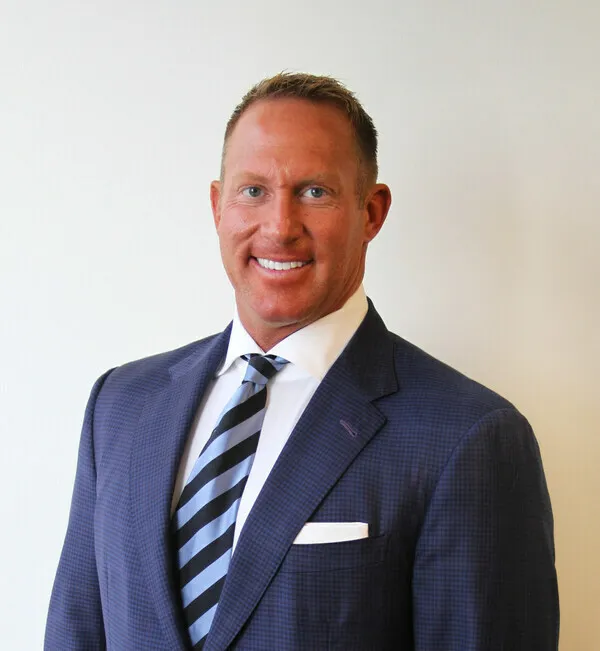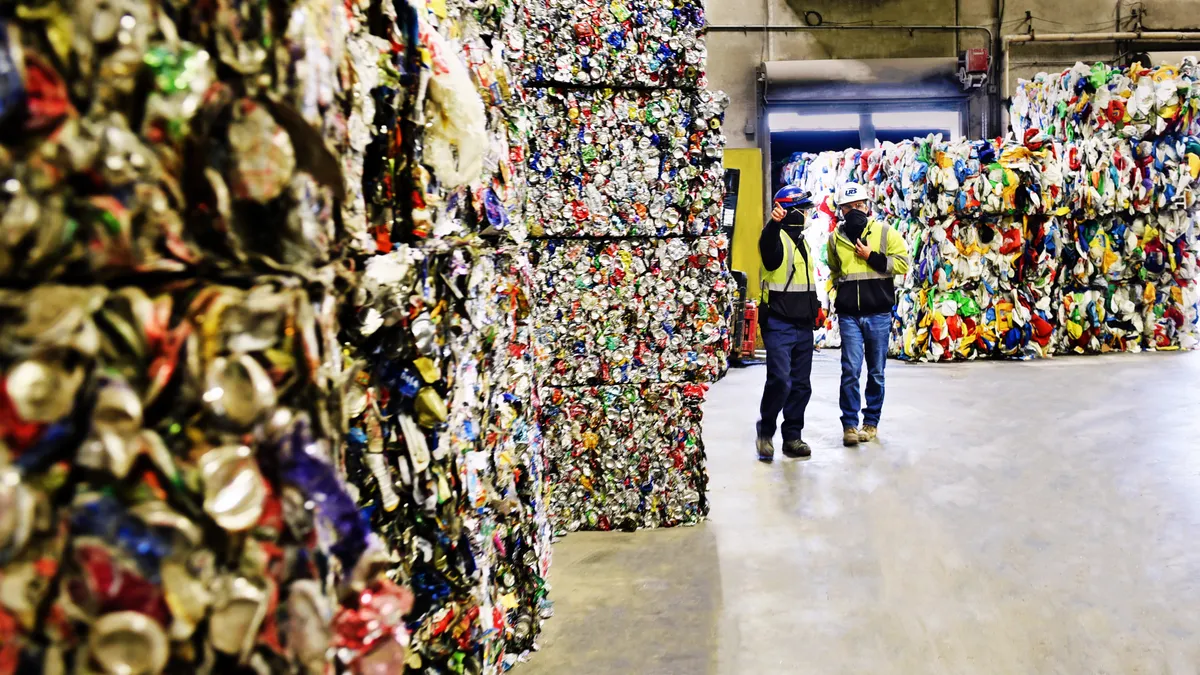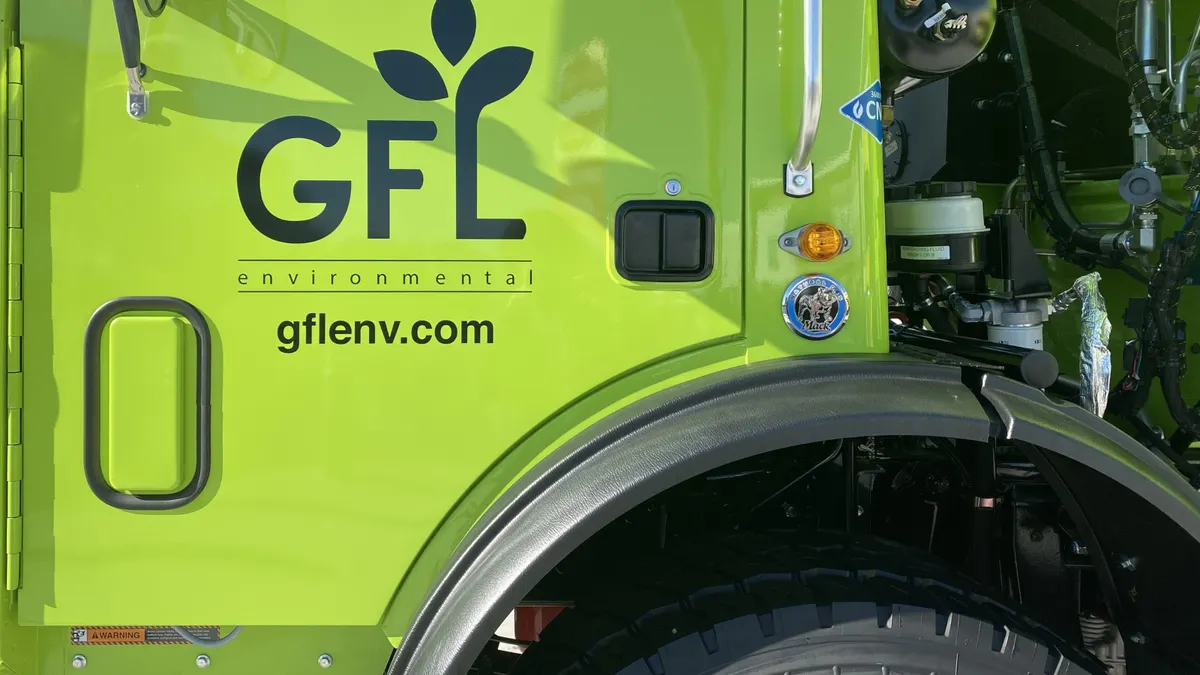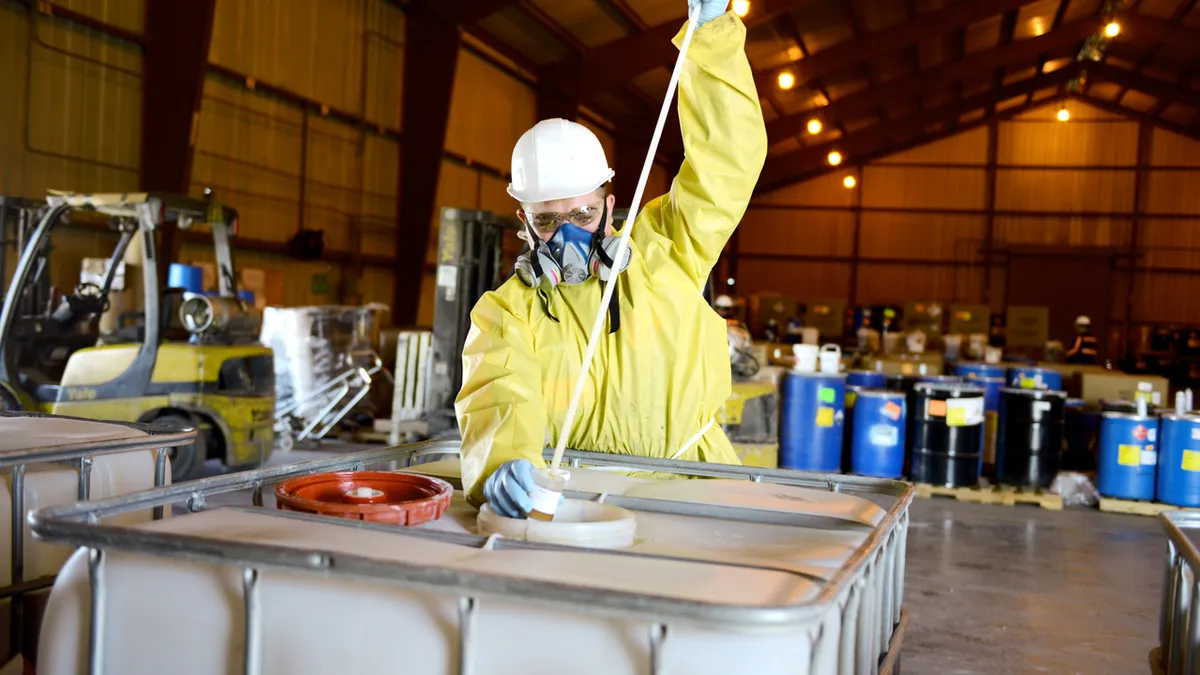LRS has gone through some notable changes this year and Matt Spencer, the company’s new CEO, is taking it in stride.
Spencer joins LRS as the Illinois-based company has scaled rapidly through acquisitions, most recently focusing on expanding its Chicago-area footprint while also growing in Michigan and Indiana. In February, it completed a corporate restructuring meant to support an “aggressive growth strategy” by promoting numerous leaders throughout the organization and creating new autonomous regions in the Great Lakes area, the Central U.S. and the South. The company has about 2,300 full-time employees and operates in 10 states.
Spencer’s new role as CEO comes as part of LRS’ broader leadership changes. Alan Handley, the previous president and CEO, departed the role in May. LRS also hired a new CFO in July.
Spencer has spent years in the waste industry, working for companies such as WM, Republic Service and WCA Waste before becoming the CEO of Sweeping Corporation of America. In his prior role as COO of WCA, he was on board as the company pursued a “significant M&A strategy” before Macquarie sold it to GFL Environmental in 2020. A division of Macquarie Asset Management also owns LRS.
Waste Dive talked with Spencer during his first week on the job about how he will apply previous waste industry experience and relationships with Macquarie to the role at LRS, and his big-picture plans for leading the company.
This interview has been edited for length and clarity.
WASTE DIVE: You’ve spent years working in the waste industry. Having all that experience, what sort of approach are you taking to this specific CEO role now that you're with LRS?

MATT SPENCER: What I’ve learned from the journey is really two parts.
The first part of the journey was that I worked at the field level. I started off as a route supervisor, driving trucks out on routes and almost all of the roles under what we would call a general manager's umbrella. Working as a general manager for the first half of my career gave me tremendous perspective on how important our customers and how important our employees are.
Those field operations are really what drive the solid waste businesses and it’s really where the rubber meets the road. When we're trying to solve problems, when we're thinking about opportunities and looking at process and growth and scalability and durability, we've got to go to the field. That's where a lot of our opportunities are and where a lot of our questions can be answered.
The last eight or nine years in my career have been in executive leadership, which has helped prepare me for my role [today]. I've outlined it in five categories. The first is really setting the direction in the strategy for the organization. Where is the business going? Where's our North Star? And what are the resources we're going to allocate to get there?
Number two is really aligning the organization and ensuring we have the right people in the right roles. Third is mobilizing the leadership team and identifying and prioritizing our must-win battles where we're gonna focus on what's the value creation of the business.
The fourth is aligning with the board of directors. Of course, a board of directors is always going to be there to help govern the business and be a partner to the business, but the leadership team and the management team runs the business. We want to tap into the experience and the network that our board has to help us grow and build a sustainable business. And then fifth is driving shareholder and stakeholder value.
You're coming into LRS just after its corporate restructuring. How are you integrating your bigger ideas about leadership with LRS’s existing vision and restructuring plans?
It’s going really, really well. I am very fortunate that I was able to walk in and the structure was already put in place. Our chief operating officer, John Larsen, spearheaded that, while collaborating with some of our board members and our leadership team in our field leadership.
The thesis and the strategy of that structure is to put resources where our employees are and where customers are, and make sure our field leadership, our general managers, have a support system to execute at a high level. Generally speaking, I think it's a really good structure that mirrors structures that I've worked in before.
Okay, so now where are we going next? What we'll focus on is what I like to call our 100-day plan. We want to conduct a deep dive of our business. A lot of growth has taken place in the last few years — you know, 20-plus deals — and it’s a different company now.
I personally want to spend a lot of time with the leadership team, and with our team members and customers, listening to what's working well, what’s not and where our opportunities are. From there, we would build a five-year plan or a value creation roadmap that sets the priorities for the organization that helps us to generate value for the organization and do it in a sustainable and durable way.
We also want to be focusing on employee engagement — investing in it, investing in our people. We have a vision that when every employee [sees] the LRS sign, they feel that they work for a great company that is safe and gives them the resources and the tools to be successful.
A piece of that long-term planning will likely include your M&A strategy. What’s your sense of the market for LRS, and what is the larger M&A approach for the company right now?
It’s still early days for me, so what I’d say is the team has really done a good job on generating value through M&A so far. We've had the opportunity to merge with a lot of really great companies and extract great people and great customers from those businesses to continue to build our platform. A lot of good work has already been done.
Going forward, M&A will continue to be a lever that we’ll pull for value creation in the organization. We do have opportunities in the region of the country where we work. We do have the appropriate resources dedicated to really think through companies and spaces that align with LRS. So I would say we will be active. We do see opportunity in the market and it will be a value creation lever for LRS.
LRS has also recently made some notable infrastructure investments like the new Chicago MRF. What's next for LRS’s larger recycling strategy, either through services or recycling improvements beyond the Chicago facility?
High level, we’re still working through the 100-day plan. So I can't identify the exact details, but I can tell you that diversion and recycling and sustainability are all part of our value proposition and part of our strategy going forward. We're going to continue to partner with current clients and new clients helping them to find solutions to their needs, whether that's infrastructure investment [or] creating new [revenue] streams. We're always looking for innovative ways to process the material, and do it in a safe and efficient way to increase the throughput and do it in a thoughtful way. We all start with the mindset of “what’s not being diverted, and what’s a possible solution for that?”
You see safety as an important part of both the day-to-day operations and long-term planning. What does that look like at LRS and the industry as a whole?
Speaking from a high level, the business has absolutely demonstrated a commitment to safety, from executive leadership down to your field leadership. There’s been an investment from a human capital standpoint and from a technology standpoint.
We've also put a lot of time in to train the frontline team members, along with investing in technology. That means things like onboard computing and cameras in the truck. Macquarie definitely makes a commitment to safety, as do I, and that's something that will absolutely be the number one priority for me and for our organization. We can't be willing to walk past anything. If you see something, say something.
You already worked for WCA, a Macquarie company, and you gained some relationships there that you’re translating over to working at LRS. What do you see Macquarie’s role being at LRS long term, and is there a timeline for them to move on at some point?
No timeline at the moment. When I was at WCA, we really took a long lens view on that business and we made business decisions that we felt were going to be durable and sustainable for a long period of time. That was how Macquarie was too — they were such a great partner in building for the long term. That's a big reason that I came back [to the waste industry].
There's a handful of reasons that I wanted to join LRS, but partnering with Macquarie again was absolutely one of them. One, they are really good at sponsoring infrastructure businesses and solid waste businesses. It's not a short timeline, where we're trying to do a quick flip. It's really building a durable, sustainable business and focusing on the long term. So that's where we are today.


















